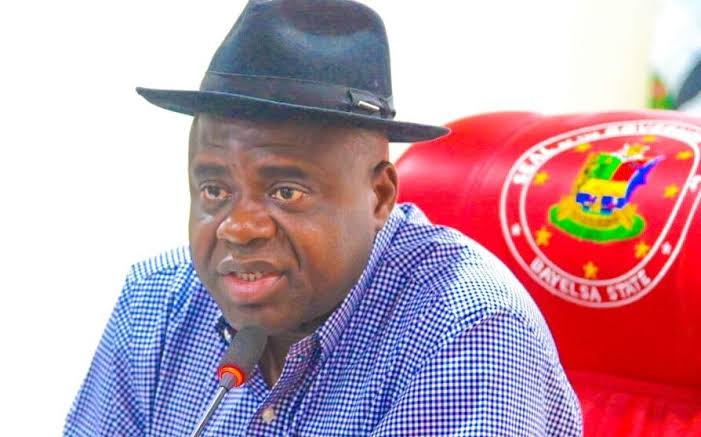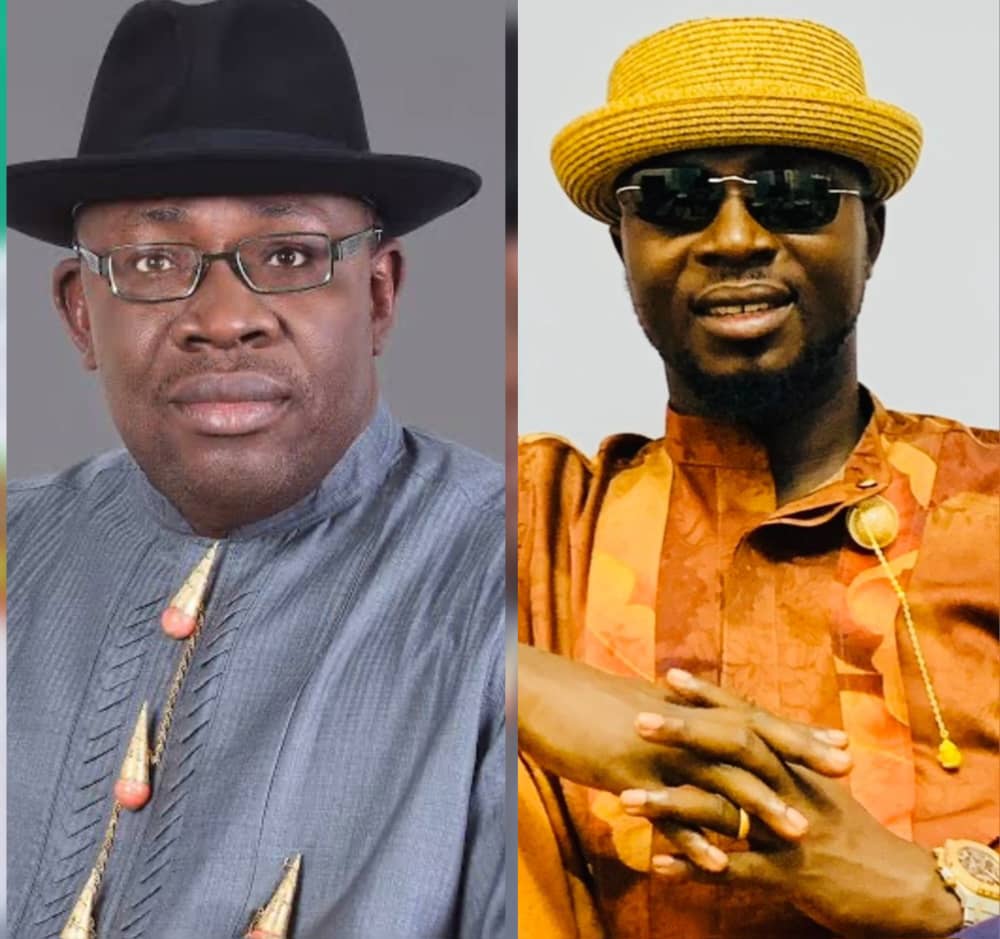Political analysis by TrackNews
The fate of the Peoples Democratic Party (PDP) in Bayelsa State, particularly under the leadership of Governor Douye Diri, is becoming increasingly precarious as political dynamics shift rapidly in the South-South region ahead of the 2027 general elections.
With recent defections of key political figures and state structures across the South-South to the All Progressives Congress (APC) — including in Cross River, Edo, Akwa Ibom, and Delta — Bayelsa is now the lone PDP stronghold in a region once considered the backbone of the party.
READ ALSO: ‘Goodluck Jonathan Snubbing PDP Internal Crisis
This isolation has profound implications for the PDP in the geopolitical zone and raises serious questions about the political durability of both the party and Governor Diri in the next electoral cycle.
Governor Douye Diri, re-elected in 2023 after a tense gubernatorial contest, now finds himself leading not just a state government, but what could effectively become a last stand for PDP influence in the South-South. This position carries both strategic importance and significant risk.
On the one hand, Bayelsa may become a symbolic bastion of resistance for PDP loyalists, particularly among those who remain disillusioned with the APC-led federal government.
Governor Diri’s governance style — which emphasizes calm stability, infrastructural development, and non-confrontational politics — may appeal to moderate voters who prefer continuity over political upheaval.
However, several factors could work against Diri and the PDP as 2027 approaches:
- Regional Realignment Pressure:
With neighboring governors and influential political blocs now in the APC, Diri may find himself increasingly isolated in regional decision-making, both politically and in terms of federal patronage. Federal allocations, security partnerships, and major infrastructure projects often require synergy between the center and the states. A united APC front in the region could sideline Bayelsa in critical negotiations. - Elite Defections and Internal Sabotage:
The shift in political momentum could trigger more defections from within the Bayelsa PDP ranks. Influential stakeholders, especially those eyeing national appointments or political survival, may begin to jump ship to align with the dominant federal structure. The loss of such figures could undermine party cohesion and weaken Diri’s base heading into the 2027 elections. - Electoral Vulnerability:
Although Diri currently enjoys incumbency advantages, the APC will likely heavily target Bayelsa in 2027 as a symbolic and strategic prize. With financial muscle, federal backing, and potentially defected PDP operatives now turned APC loyalists, the party could mount a formidable challenge, especially if it fields a popular candidate with Ekeremor or Southern Ijaw support. - Legacy vs. Performance Debate:
Governor Diri’s governance has so far been marked by stability and modest infrastructure growth, but he lacks the larger-than-life political presence of his predecessor, Senator Henry Seriake Dickson. By 2027, voters will judge Diri not just on party loyalty, but on tangible outcomes — roads, education, jobs, and security. If APC governors in the region outperform him visibly, PDP’s rhetoric of loyalty to the South-South may no longer hold sway. - National PDP Weakness:
The national PDP is in a state of ideological and leadership crisis, with internal factions and a weak central narrative. Without strong national coordination or a charismatic presidential hopeful to rally the South-South base, Governor Diri may be left to defend Bayelsa with little or no external support. This could be politically costly.
Still, all is not lost for PDP in Bayelsa.
Governor Diri retains strong grassroots support, particularly in central Bayelsa and among the Ijaw political elite, which values continuity and historical loyalty to the PDP.
READ ALSO: Southern Ijaw Headquarters Road Ready Next Year – Diri
Additionally, APC’s growing dominance may provoke anti-establishment sentiment, especially if economic or social conditions worsen under a federal APC administration before 2027.
To stay relevant, Diri and the Bayelsa PDP must now act strategically:
Strengthen intra-party unity and reconcile aggrieved factions to prevent further defections.
Ramp up visible development projects in the lead-up to 2027, particularly in key battleground LGAs like Southern Ijaw and Brass.
Reposition Senator Dickson and other PDP heavyweights as defenders of Bayelsa’s political autonomy to galvanize resistance to “external political takeover.”
Engage youths and civil society with renewed outreach and economic empowerment programs to maintain voter loyalty.
Rebuild strategic alliances across the Niger Delta, including with sympathetic non-PDP actors, to prevent total regional marginalization.
In summary, Bayelsa PDP’s fate now hinges on its ability to rebrand itself as a resilient, locally driven force in a region shifting rapidly toward the APC.
Governor Diri’s political future — and PDP’s relevance in the South-South — will be shaped by his ability to lead decisively, govern effectively, and build coalitions beyond party lines in the face of growing federal and regional pressure.





